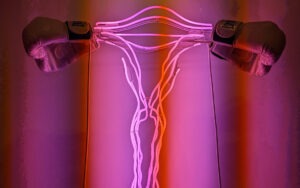June 27, 2016; Texas Tribune
In a historic decision on its last day of rulings, the U.S. Supreme Court struck down two controversial provisions in a 2013 Texas law that has drastically reduced the number of accessible abortion facilities in the state. In a 5 to 3 decision in favor of the health clinics, with Justices Clarence Thomas, John Roberts, and Samuel Alito dissenting, the Court overturned two parts of Texas House Bill 2: the requirements that physicians performing abortions have admitting privileges at a hospital within thirty miles, and that abortion clinics meet the minimum standards of ambulatory surgical centers.
The Justices agreed with abortion providers that the provisions have so acutely limited access to clinics they place an “undue burden” on women’s constitutional right to an abortion. The decision comes following the UN’s report calling Ireland’s restrictive abortion laws a violation of women’s human rights, another major step forward in the pro-choice movement.
“We conclude that neither of these provisions offers medical benefits sufficient to justify the burdens upon access that each imposes,” wrote Justice Stephen Breyer in the majority opinion. “Each places a substantial obstacle in the path of women seeking a previability abortion, each constitutes an undue burden on abortion access, Casey, supra, at 878 (plurality opinion), and each violates the Federal Constitution.”
In the decision’s most immediate aftermath, the plaintiffs will not have to close any more abortion clinics. In reaffirming and strengthening constitutional protections for abortion rights, it’s likely similar provisions in other states will be found to be unconstitutional, which will affect restrictions on abortions in the future. Currently, 14 states require doctors performing abortions to have admitting privileges at a nearby hospital, and 22 states have similar requirements on clinics meeting the standard of an ambulatory surgical center.
“Every day, Whole Woman’s Health treats our patients with compassion, respect and dignity,” said the group’s CEO and founder, Amy Hagstrom Miller. “And today the Supreme Court did the same. We’re thrilled that today justice was served and our clinics stay open.”
Sign up for our free newsletters
Subscribe to NPQ's newsletters to have our top stories delivered directly to your inbox.
By signing up, you agree to our privacy policy and terms of use, and to receive messages from NPQ and our partners.
Democratic presidential candidate Hillary Clinton celebrated the decision as a victory for women, as did Planned Parenthood and other women’s rights groups. Pro-choice group NARAL said it was a “great day for women.”
“The Justices apparently saw what we already knew—that the Texas law under review and all those like it are never about protecting women. They are about trying to ban abortion and undermining a woman’s dignity and ability to determine her own future,” said NARAL President Ilyse Hogue. “The Supreme Court rightfully rejected this assault on our constitutional rights and said with a clear voice that attacks on access to safe and legal abortion care—even deceptive attacks like the Texas law—will not stand. This decision will help to stem the public health crisis in Texas by allowing the remaining clinics in Texas to keep their doors open, and it paves the way for new clinics to open and meet the needs of the millions of women in underserved areas of Texas.”
The law was passed in July 2013, and abortion providers filed the first lawsuit challenging the law the following September. Both provisions had been hailed as necessary requirements to maintain women’s safety during the abortion procedure and were part of “the compelling state interest in protecting the lives of unborn children.”
However, as noted by Justice Breyer’s majority opinion and Justice Ruth Bader Ginsburg’s concurring opinion, there is a “virtual absence of any health benefit” to women. According to the majority opinion, the ambulatory surgical center requirement not does “benefit patients and is unnecessary.” Justice Breyer also noted that there is “sufficient evidence” that the admitting privileges requirement has been instrumental in the needless closure of many Texas abortion clinics, a major point Justice Alito disputed in his dissent.
Notably, Justice Ginsburg writes, “It is beyond rational belief that H.B. 2 could genuinely protect the health of women, and certain that the law ‘would simply make it more difficult for them to obtain abortions.’”
As NPQ observed when arguments for the case began in March, the limited availability of abortion clinics in the state is a well-documented consequence of the law, increasing the risk of women undertaking risky, self-induced abortions. More than half of the state’s clinics have closed in its aftermath, down from over forty clinics to just nineteen remaining. Had the law been upheld, it would have reduced that number down even further, leaving ten in the nation’s second most populous state. Further, the clinics would have been clustered in just four metropolitan areas, leaving vast areas without reasonable access. According to state health officials, there was a 14.2 percent drop in abortions in 2014 compared to 2013 before the law.—Shafaq Hasan













